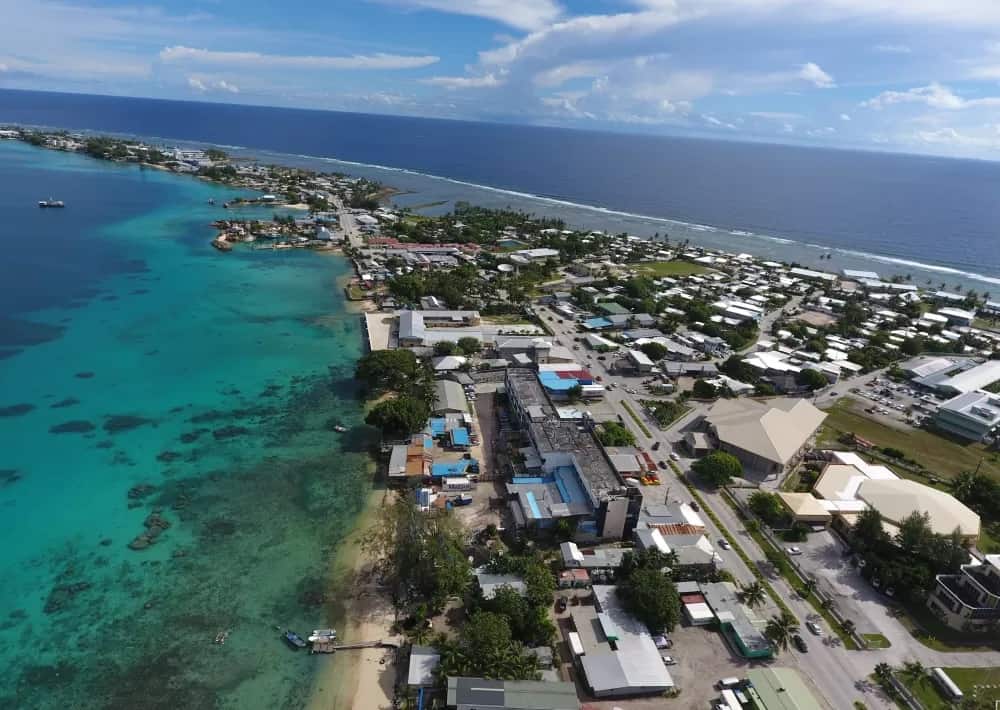Announced and emergency power outages, and power rationing have governed life in the capital of the Marshall Islands since late last year.
The problem reached an all-time low in January when various areas of Majuro experienced power outages from 30 to over 60 hours in duration. Daily outages and power rationing are currently a way of life as the Marshalls Energy Company struggles to meet power demands in Majuro with a handful of engines well beyond their “best by” date.
This is having a significant impact on everyone: Businesses are forced to run “backup” generators for days at a time, food in freezers often spoils during extended outages, and appliances — everything from air conditioners to computers — become collateral damage of power fluctuations.
The Marshalls Energy Company imported six container generators to help stabilise power and the hope of the government utility company is that they will be installed and operational by the end of March. These new generators will add five megawatts of power to service Majuro, which uses close to 10 MW at peak periods.
The problem centres on antiquated generators in two connected power plants run by MEC: Several engines that hit 40 years of operation in 2022 were recently decommissioned as part of a plan to install two new and more fuel-efficient engines in a new power plant building. This leaves two semi-functional generators at the MEC power plant in Majuro. One of the two large Deutz engines — both over 24 years old — is undergoing long-term maintenance, leaving only two engines — a Deutz and a Caterpillar — functioning in the plant.
These engines have been supported by several container generator units that, when combined, can power Majuro. The challenge facing MEC is that when the Deutz engine experiences a problem, it results in significant portions of Majuro being turned off since the power plant does not have backup generating capacity to keep power on when this engine goes down for repairs. The incoming six container generators will help, but the capital cannot be powered without power plant engines working.
In February 2023, MEC CEO Jack Chong-Gum predicted that the best-case scenario for power being stabilised was two years. It is likely to be significantly longer than this, based on the past four months of power difficulties.
In this environment, the country is aiming to host its first Micronesian Games from 15 – 24 June, with an anticipated 1,500 inbound athletes, coaches, officials and VIPs — to say nothing of fans.
The Micronesian Games Council called for an urgent meeting of its members and the MAJOL2024 Organising Committee on 01 March to discuss the ongoing power issues.
The Micronesian Games Associations were aware of Majuro’s challenges and all 10 of the associations were present on the Zoom call, said the organizing committee in a statement after the meeting.
MEC reassured the Micronesian Games organisers and intending participants that it could power the June sports competition. This assurance led the Micronesian Games Council to give the Majuro Games a thumbs up at a special meeting on 01 March.
Tony Muller, organizing committee chairman and Cabinet minister, brought together all utility and logistics-related people to meet with the MGAs throughout the region, including Guam.
Chong-Gum said that while MEC’s current capacity of 10 megawatts is struggling to accommodate Majuro’s power needs resulting in power rationing, six container generators had just arrived and were being installed. This will add at least five megawatts to MEC’s power capacity.
Chong-Gum said he is confident MEC will have the capacity to fully power Majuro, including the increased power requirements during the Games.
Following extensive discussions around the concerns raised by the MGAs, Micronesian Games Council President Sen. Aurelio Joab acknowledged the challenges, from Covid to supply chain to power issues, encountered by the MAJOL2024 Organizing Committee. After consensus by the MGAs, he affirmed that the Games would proceed as planned.
“Regardless of the challenges, our community is resilient and the Republic is honored to host the 10th edition of the Micronesian Games,” said Muller.
In the meantime, two new sports facilities for the games were blessed and turned over by contractor Pacific International Inc. last month but could not be fully utilized due to the utility company’s lack of power capacity.
The lights at both the national gymnasium — refurbished after 13 years of no use after termites caused a partial roof collapse — and the newly constructed track and field and baseball field — built on 18 acres of reclaimed land — cannot be used due to power constraints. Track competitors and softball players are unable to practice for nighttime play and basketball teams have shifted to other venues for practice until they are given the greenlight that MEC can power their home courts.
The Micronesian Games Council is planning a follow-up meeting in early April to confirm that power and other services are operational for the upcoming games.
